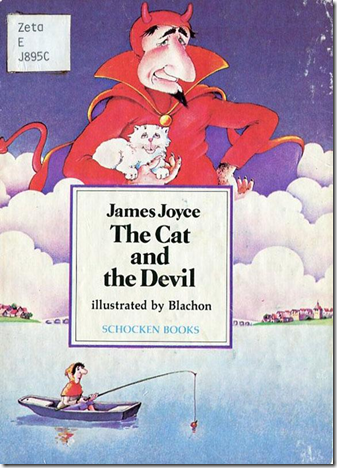Matthew Dicks's Blog, page 489
January 24, 2013
They can’t win. At least when the critics are stupid.
Coca-Cola has rolled out a series of anti-obesity ads that highlights some of the measures that the company has taken already to curb obesity, including making calorie counts more visible and packaging more products in smaller cans and bottles.
Critics of the campaign claim that Coke is mere trying to enhance its image in this time of increased awareness of obesity. These same critics claim that if the company was truly concerned about the obesity epidemic, they would change their product entirely or alter their pricing to encourage healthy consumption, which really means less consumption.
I think these critics are stupid, naïve ignoramuses.
Of course Coke’s campaign represents an attempt to enhance its image. This is the purpose of advertising. It’s why advertising exists.
What would these critics have the company do? Spend millions of dollars on public service announcement instead? Spend money in an effort to decrease sales?
Their suggestions for how Coca-Cola might effect real change are equally stupid. Essentially, critics would like Coco-Cola to stop selling Coca-Cola or sell their products at such exurbanite rates that people would drink less of it.
Sure, this might curb consumption and reduce the total number of calories that customers are ingesting, but Coca-Cola is not a non-profit organization. It is not Jenny Craig or Weight Watchers. It is a company that sells a soft drink, beholden upon its stockholders and employees to earn a profit, with a loyal following of adult consumers who can make choices for themselves.
There’s nothing wrong with a company engaging in advertising in order to enhance it image, and while the measures the company has taken to reduce obesity fail to transform the product into a calorie-free beverage or price is like printer ink or black market hemoglobin, they are legitimate strategies designed to assist consumers who are interested curbing their calorie intake.
Failing to give credit to the company for these legitimate measures makes you look extremist, naïve, uncompromising and ultimately stupid.
January 23, 2013
Christmas morning. Unwrapped presents still under the tree. Discussion on the nature of 13.
I wrote about this back when it happened, but here is the video of the actual moment.
In the midst of opening Christmas presents, Clara stopped and asked to practice her numbers on the computer instead. Despite our attempts to convince her to finish opening her presents first, I spent about 20 minutes doing this.
I’m going to show this video to my students the next time they tell me that they didn’t have time to finish their homework in a given week.
I wonder if his children’s book is nearly as impenetrable as his adult fiction.
I’d purchase a copy to find out for myself, but it is sadly out of print. Amazon is offering it for as low as $98.97, but I don’t need to know that badly.
January 22, 2013
There is always a reason for an imaginary friend
Someone invented Manti Te’o’s imaginary girlfriend. Whether he was the victim of an elaborate hoax or the perpetrator of the scheme, the fact remains: Te’o professed to loving a woman who did not exist. He had never held her hand, kissed her on the lips, or assured her that she was the best looking woman in the room. How could he? He had never laid eyes on her. Yet Manti Te’o had called Lennay Kekua “the love of my life.” She was an imaginary girlfriend in an imaginary world.
Only in an imaginary world would Te’o’s grandmother and girlfriend die within five hours of each other at the onset of a possible Heisman Trophy winning season. Only in an imaginary world would a star football player skip his girlfriend’s funeral, defeat an arch rival, and dedicate the game ball to her memory. And only in an imaginary world would the captain of a football team use the death of his grandmother and girlfriend to lead his team to an undefeated season and a shot at the national title.
This is the stuff of fiction, the stuff of invention. But it doesn’t come out of nowhere. There is always a reason for an imaginary friend.
I had an imaginary friend as a child. His name was Johnson Johnson. A friend and confidant, Johnson Johnson spent hours riding on my back, whipping his cowboy hat into the air and firing his pistols at traitorous Indians, the Lone Ranger to my loyal Silver. When my parents fought (which happened a lot), Johnson Johnson hid in the basement with me, keeping me company, keeping me safe.
It wasn’t until I was ten that I discovered that he wasn’t real. My parents occasionally took in foster children and I had made what I considered to be a natural assumption—that Johnson Johnson was just another temporary sibling. My mind had created Johnson Johnson and conveniently bestowed upon him all of the attributes that my younger brothers and sisters were lacking. Johnson Johnson didn’t depend on me. He didn’t insist that I wear a house key around my neck every day or that I make sure my siblings boarded the school bus safely. Johnson Johnson was the one person in my life who gave me what I wanted: the opportunity to be a kid. I wanted to ignore my parents’ battles and my siblings’ needs and just think of myself. Johnson Johnson allowed me to be irresponsible, unkind and selfish, and I loved him for it.
There is always a reason for an imaginary friend.
Twenty years ago, I knew a woman I’ll call Nancy. Nancy was a small in stature, high energy, uncommonly tolerant woman who called everyone she met “Honey.” Nancy was also gay and very much in the closet. In order to avoid the inevitable questions about boyfriends and marriage, Nancy invented an imaginary fiancée who had died in a car accident years before. This imaginary, deceased fiancée silenced nosy aunts and well-meaning acquaintances, and gave her a graceful excuse when it came to occasional offers of set-ups and blind dates. Her tragic loss kept the curious at bay.
There is always a reason.
As an elementary school teacher, I’ve known many children with imaginary friends. Some children possess an overactive imagination that requires an outlet. Others have a difficult time making friends and require close companionship. Imaginary friends fit the bill Always present, always supportive, they are allies and accomplices, that safe person to whom a child can always turn.
Imaginary friends serve many needs and they take many forms: small animals, paper dolls, ghosts, spots on the wall. Real children, too. Some of kids have adult-sized imaginary friends. These imaginary adults typically fill the roles of absent fathers and mothers. They’re often dressed in formal wear and carry umbrellas, handbags and briefcases. They’re called Mr. Bruno and Mrs. May—names that suggest authority and a certain order.
Imaginary friend exist for a reason, and it’s often a good one. But not always.
In September of last year, American voters watched Clint Eastwood invent an imaginary version of President Obama in order to debate him at the Republican Convention. Speaking to a chair, Eastwood created a stir by posing questions that Imaginary Obama could not answer. Like any good imaginary friend, Imaginary Obama served his master well, refusing to refute any of Eastwood’s claims. He just sat there, invisible and agreeable.
Hardly surprising.
After all, imaginary friends serve their imaginers at all times. That’s their job. They fill the gaps in our lives. The spaces of discomfort. In Eastwood’s case, Imaginary Obama served as the mute prop that he required. Lacking the courage to debate the real President Obama. Eastwood chose a straw man over the real one.
An imaginary president.
In the coming days and weeks, the reason behind the creation of Manti Te’o’s imaginary friend will likely be revealed. For Te’o’s sake, and for the sake of an American public that does not need another sports villain, I am hoping that Manti Te’o was naïve and gullible rather than nefarious and calculating. As tragic and mystifying as it may seem to fall in love with an imaginary girlfriend, at least there is innocence behind this idea. An understanding that we all want to believe in something. Perhaps Manti Te’o simply needed this more than most of us. Perhaps he needed something else.
There is always a reason.
Storytelling coming to Connecticut! Save the date!
I’ve decided to launch a local storytelling series here in Connecticut, modeled after The Moth, the organization in New York City that hosts the storytelling events in which I compete but absent the competitive element and the random nature of the storytellers.
Basically we are planning an evening of pre-selected storytellers, telling true stories onstage for 5-8 minutes on an assigned theme.
I’ve fallen in love with storytelling over the past 18 months and would like to create a opportunity for for storytellers like me to tell stories to willing audiences here in Connecticut. While I plan to continue telling stories at The Moth on a regular basis (I’m off to a StorySLAM today). I’d love to do something more local that friends can take part in as well.
Last week I secured a location and date for the event:
Saturday, May 4 at 7:00 PM at Real Art Ways in Hartford.
Real Art Ways is excited about the event and prepared to support us in any way that they can. They will be publicizing the event to their members and the general public, providing the space and sound equipment that we well need, and have agreed that the event will be free of charge. Beer and wine will be sold during the evening, but otherwise this will be open to the public. The space seats about 75 people comfortably and about 100 jammed in.
I want us to be jammed in.
We’ll also have coverage from The Hartford Courant and other media outlets where I have contacts, so we should have a good turnout.
My vision is for this to become a storytelling series that happens 3-4 times a year, with people outside my circle of friends eventually pitching stories for the evening as well. I’d like the first event to be a huge success in order to springboard to future storytelling evenings.
The theme of the night is Beginnings. It’s fitting for what we are undertaking and hopefully broad enough for our storytellers to find a story from their lives that applies.
We (my wife and I) are in the process of finalizing our storyteller lineup and deciding upon a catchy name for this event, and once those details are settled, we will publicize this information to you.
For now, please just save the date if you are interested in attending. It promises to be an entertaining evening of storytelling from ten people who are sure to make us laugh, cry and think.
January 21, 2013
Making a defeat look like a win
MEMOIRS OF AN IMAGINARY FRIEND did not win the 2012 Goodreads Choice Award. Being nominated was an honor, of course, and making it to the finals was thrilling, but the book finished ninth behind such bestselling authors as JK Rowling, Junot Diaz and Emily Giffin.
However, it also beat books by bestselling authors like Barbara Kingsolver, Michael Chabon and Peter Heller.
Overall, this is what is known as a defeat.
However, Little Brown UK has made my defeat look more like a victory with this sticker that they have placed on the British e-book.
If someone could make yesterday’s unsightly New England Patriots loss look equally appealing to me, it would be greatly appreciated.
Best Christmas morning words ever spoken
It’s a little late, but I finally got around to looking at the video footage from Christmas. This was one of my favorite clips.
January 20, 2013
It’s ironic, damn it. Or close enough.
Anyone who criticizes Alanis Morissette’s song Ironic for its lack of irony is an intellectual douche bag. It’s a four minute pop song. It need not be held up to any literary standard.
Yes, “ten thousand spoons when all you need is a knife” is not ironic by the truest definition of the word, but it seems pretty damn ironic to me.
The Wizard of Oz versus Star Wars
Late last week I “stirred up a hornet’s nest” by writing a piece arguing that the reason Hasbro markets Easy Bake Ovens solely to girls is because the vast majority of children who want an Easy Bake Oven are girls, and the company has no obligation to the minority of boys who might want one.
This was not a chicken-or-egg debate over why more girls prefer the Easy Bake Oven than boys (though some wanted to make it one). I was simply arguing the logic behind Hasbro’s decision from a business perspective.
But the chicken-or-egg debate is an interesting one as well, and one worth discussing. In terms of why more girls than boys prefer this toy, I thought this TED Talk was the perfect place to begin thinking about the issue:
January 19, 2013
The most baffling part about the North Korean government is their inability to lie well.
The North Korean government is obviously unlike any other governing body in the world, but what I cannot understand is why they are such bad liars. While there may be good reasons to enhance the reputation of their country and their dictator around the world, the propaganda that they promote is so ridiculous and ultimately damaging to the nation’s image that they would be better off saying nothing.
For example, while he was still alive, their official news agency claimed that former North Korean dictator, Kim Jong II, had invented the hamburger, composed six operas and written more than 1,500 books in three years while at university.
His birth was reportedly heralded by a swallow and caused winter to change to spring, a star to illuminate the sky and rainbows to spontaneously appear.
According to his official biography, he did not defecate, despite this book’s insistence that this could not be true.
Best of all (at least to a golfer), he reportedly shot eleven holes-in-one the first time he played golf (a feat verified by his army of bodyguards).
Is the North Korean government so backward as to think that these claims would be received by anything but amused smirks by the rest of the world?
I honestly don’t get it.






